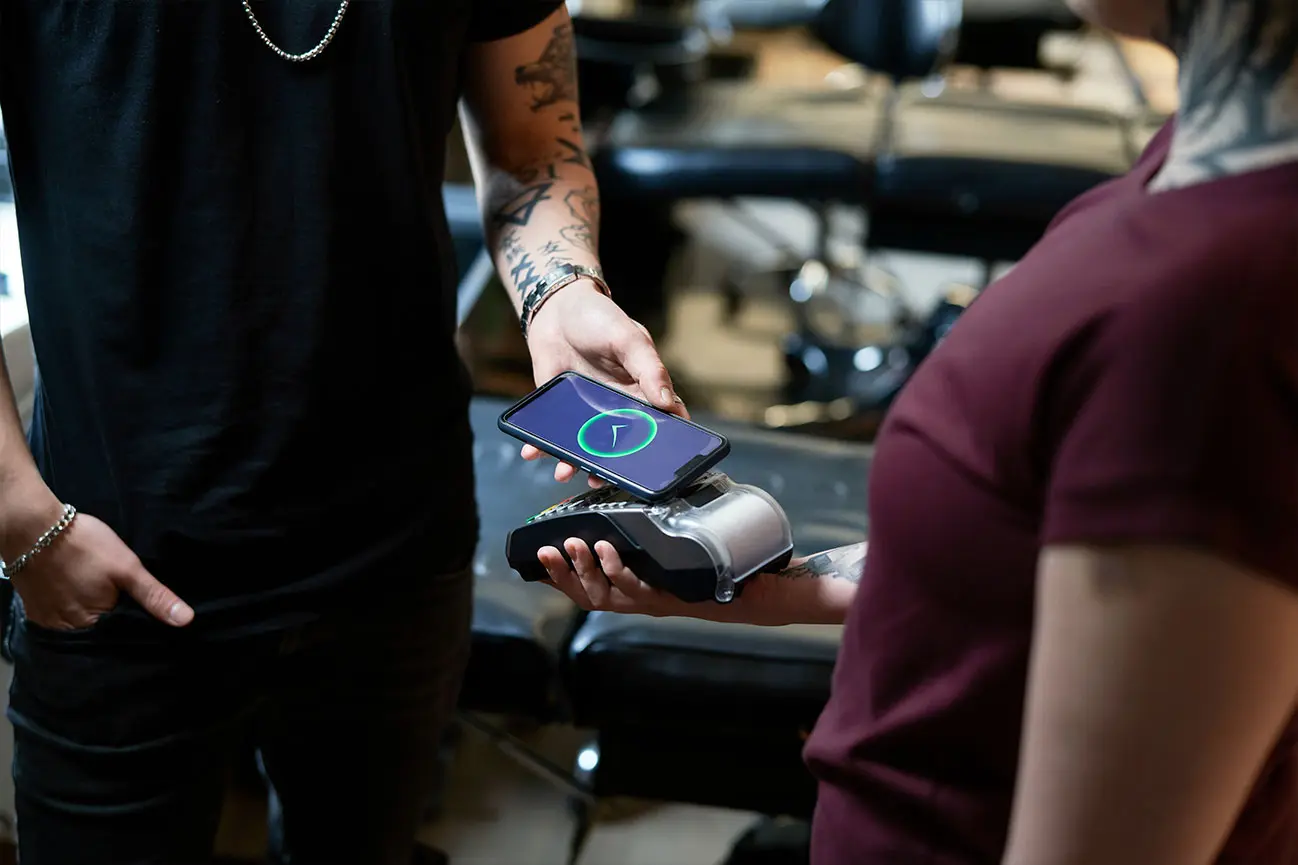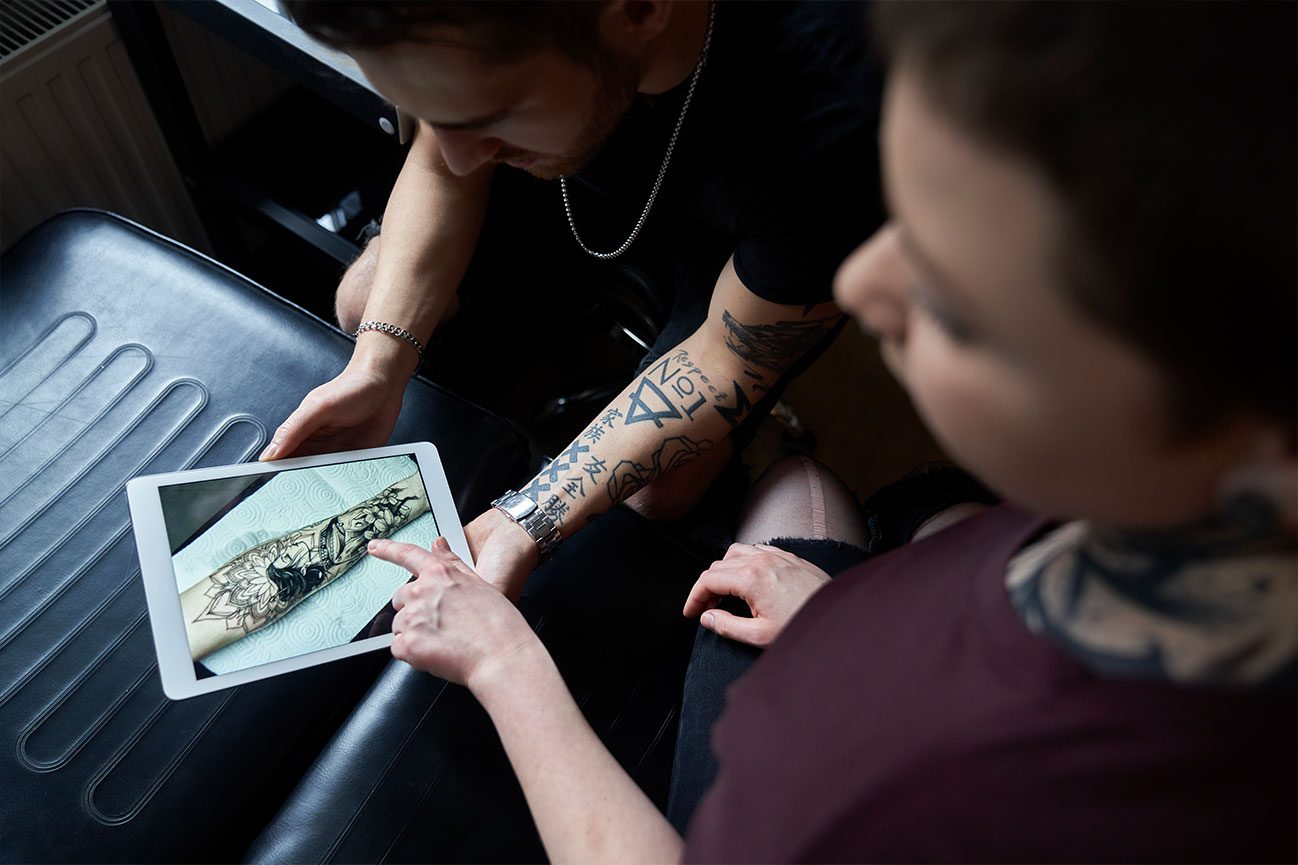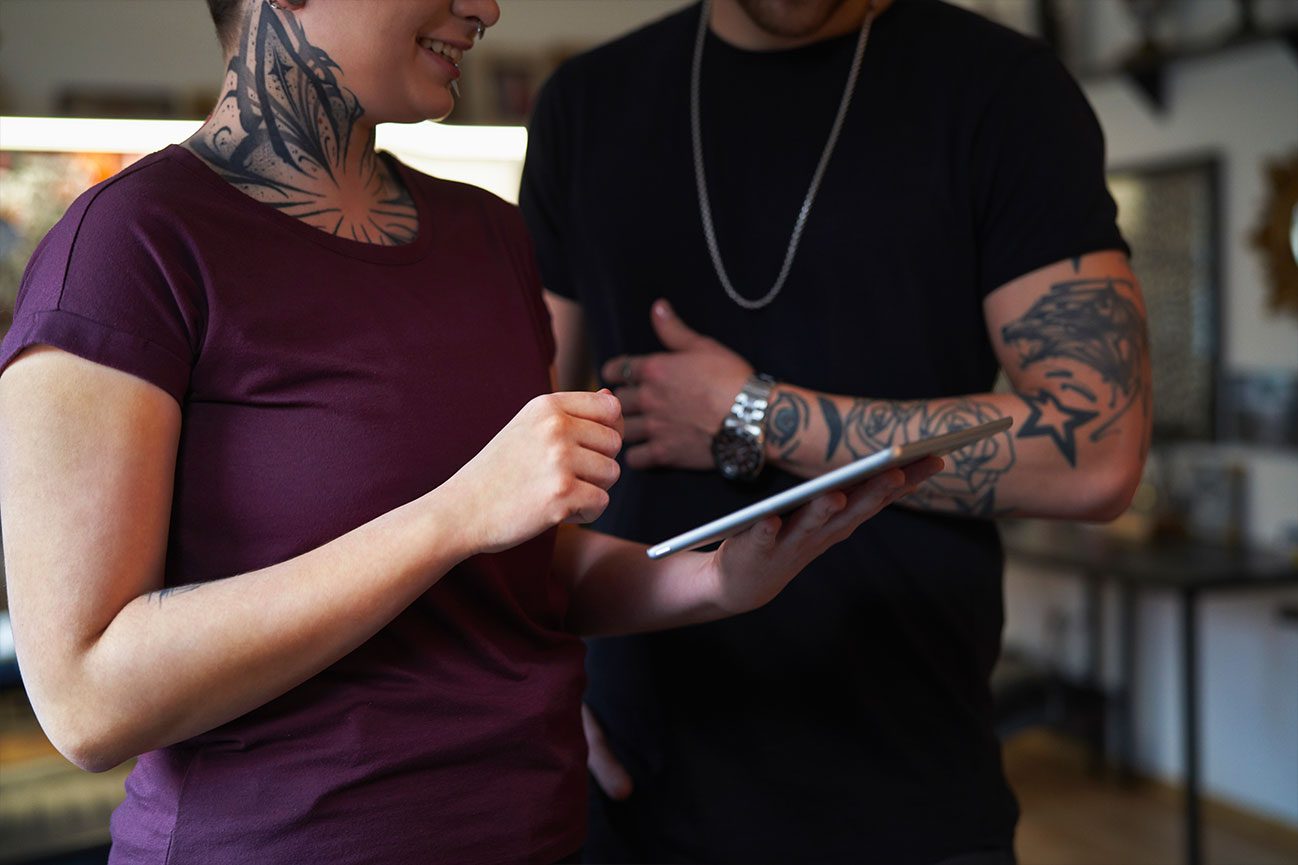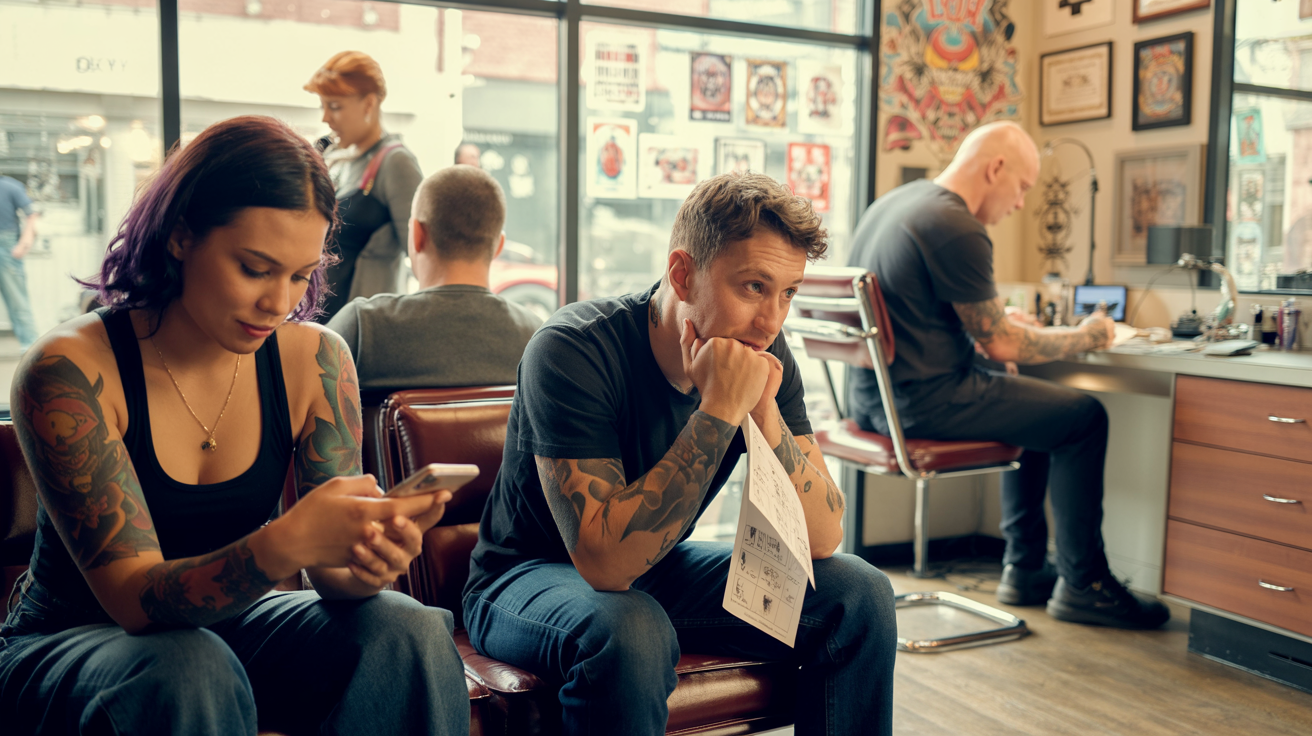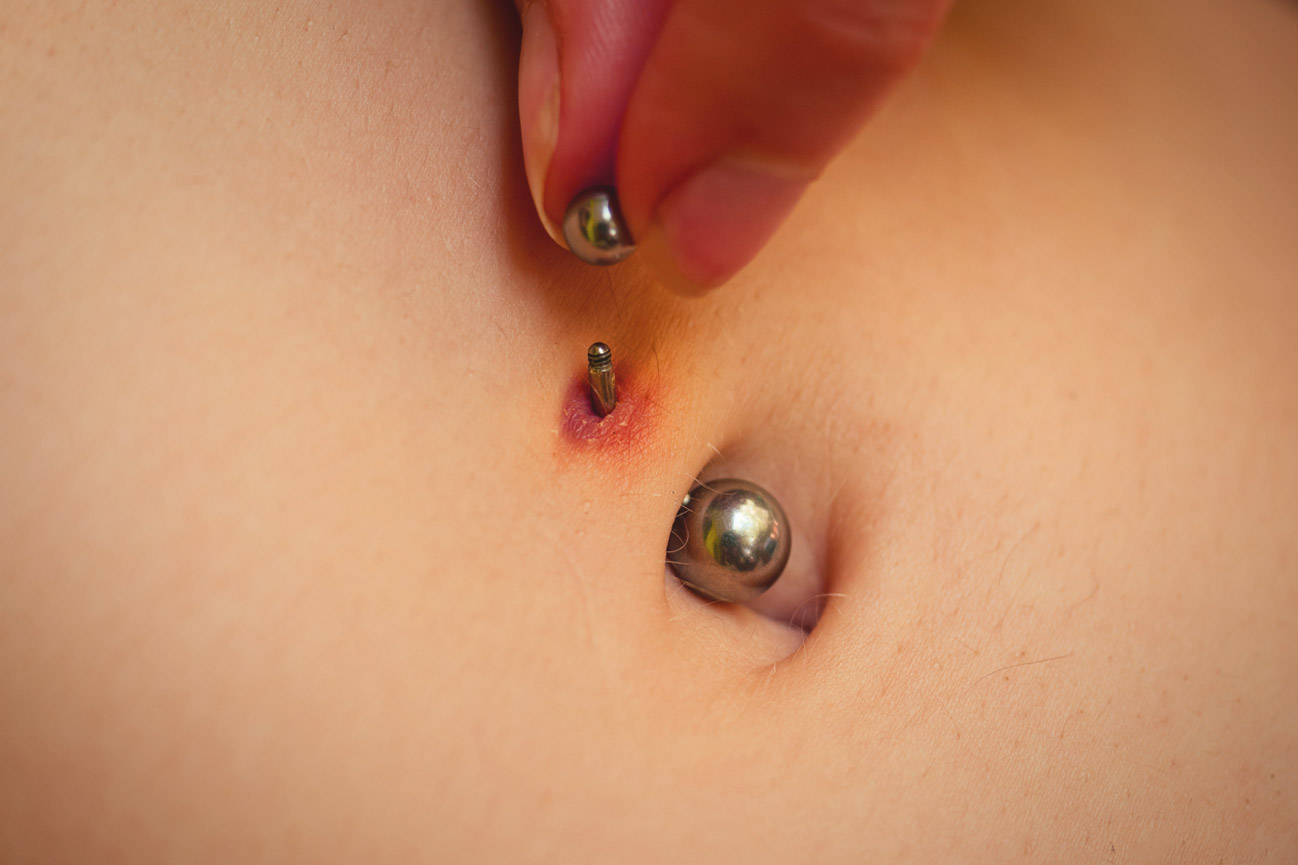Introduction to Tattoo Pricing:
Get ready for an in-depth exploration of tattoo pricing and the key factors that shape it. When you’re considering a new tattoo, two fundamental questions emerge: What design are you envisioning, and how much will it cost? Tattoo pricing is influenced by a variety of factors that contribute to the final amount. Understanding and respecting these factors is crucial. It’s important to remember that tattoos become permanent art on your skin, and the cost reflects the quality of the work.
Let’s look into some important aspects: shop expenses, design intricacy, and the artist’s skill. All of these come together to determine the overall cost of your tattoo. The shop’s operational costs have an impact on the price you pay. Additionally, the complexity of your chosen design is a factor; more intricate designs often require more time and skill. On top of that, the artist’s experience and expertise play a role in the pricing. Their talent contributes to the final cost. As we explore these elements, you’ll gain a better understanding of how they work in harmony to define the investment of your next tattoo.
Size and Complexity of Tattoo Pricing:
Tattoo pricing isn’t a one-size-fits-all scenario—it’s influenced by the size and intricacy of your chosen design. Larger tattoos tend to require more time, attention, and resources, which can translate to a higher price point. Similarly, the complexity of the design adds another layer to the equation. Elaborate designs require meticulous attention to detail and heightened skill, contributing to the overall investment. Tattoo artists invest time and effort in their craft to ensure that every nuance is captured accurately, which can impact the price. Complex designs require meticulous attention to detail and heightened skill. These tattoos may require multiple sessions to obtain the desired result which may require multiple payments on a single tattoo.
Understanding how size and complexity factor into tattoo pricing empowers you with a grasp of the process. Quality work is not cheap, they are investments. If you are wanting a large scale piece you must commit to time in the tattoo chair and paying for the sessions. Keep in mind smaller, simpler designs will result in lower price point or shop minimum due to less materials and time spent creating them. For example a 1×1 tattoo can range from $100-$150 while a 4×4 tattoo can range from $200-$350. Always communicate your budget and goals with your artist, consultations for larger or complex pieces is vital. It may seem like an extra step, it’s an important one!
Design Customization: Tattoo Pricing
Opting for a custom tattoo is distinctly different from choosing a flash tattoo with a fixed cost. Unlike predefined designs, customization offers the opportunity for your ideas to flourish, resulting in a truly personalized tattoo. This bespoke approach entails collaboration with the artist, transforming your vision into a one-of-a-kind reality. When getting a custom tattoo it is important to trust your artist to create something that fits your vision, but also translates well on the skin. Researching your tattoo artist and finding someone who is skilled in the style of tattoo you are looking for is important and will ensure you have a tattoo that meets your expectations.
In this process, it’s common for tattoo artists to request a deposit upon scheduling your appointment. This deposit secures your slot and demonstrates your commitment. Keep in mind when paying a deposit you are paying the artist to start drawing your custom piece, if you do not show up to your appointment this ensures they are still getting paid for their time. Tattoo deposits are often deducted from the final cost of your tattoo. Custom tattoos can be priced in two ways, hourly and flat rate. Typically larger scale tattoos will require multiple sessions, an hourly rate works well for these types of tattoos. For medium size and smaller, a flat rate for the tattoo may be used. Every shop and artist has their own tattoo pricing guidelines don’t hesitate to ask questions about shop minimums and rates.
Artist’s Experience and Reputation:
Tattooing isn’t just a skill; it’s a craft that requires dedication and years of honing. An artist’s experience and reputation are rooted in the journey of apprenticing, practice, and continuous refinement. Becoming a skilled tattoo artist demands an extensive period of learning and apprenticeship under experienced mentors. This hands-on training is invaluable in mastering techniques, understanding skin anatomy, and perfecting the art of translating ideas into skin.
Artists with a well-established reputation and extensive experience are often highly sought after, shaping a unique demand for their skills. It’s important to note that securing an appointment with a highly requested artist might pose a challenge due to their popularity. Staying updated with their social media accounts can offer insights into when their booking slots open, allowing you to plan accordingly. Highly skilled artists, backed by years of expertise, might command higher tattoo pricing for their work. This isn’t just about cost—it reflects the value of their craft. A seasoned artist has mastered their skills and is likely to deliver exceptional results. It’s a fact worth remembering: good tattoos aren’t cheap. When selecting an artist, factoring in their experience and reputation ensures you not only have an exceptional tattoo experience but a work of art that will bring you enjoyment for years to come.
Body Placement:
Choosing the right spot for your tattoo isn’t just about aesthetics—it can also influence the cost. The location on your body where the tattoo will be inked plays a crucial role in determining the price, influenced by various factors. Certain areas of the body can be more challenging to tattoo, requiring additional expertise and attention. Moreover, some areas of the body are more sensitive, making the tattooing experience more uncomfortable and necessitating extra care from the artist. Areas like the hands and the neck are known for having delicate skin, which demands meticulous handling during the tattooing process. These regions are susceptible to swelling and can be more painful due to the sensitivity of the skin and the proximity to tendons, bones and nerves.
Considering the placement of your tattoo is vital as it not only influences the design’s visual impact but also the cost associated with its creation. By understanding how body placement factors into tattoo pricing, you’re better equipped to make informed decisions about both the design and its placement, ensuring a tattoo that aligns with your preferences and comfort level.
Time Taken:
Tattooing, an intricate art form, is more than just design and skill—it’s also a testament to the time invested. The duration required to complete your tattoo holds substantial influence for the overall cost. Larger and intricate designs inherently demand more time for the artist to successfully complete the piece. The intricacies of shading, small details, and precision work demand careful attention, naturally extending the tattooing process.
Aspects like the placement on your body and your personal comfort play a role in the time taken. Sensitivity and the need for occasional breaks for tough areas are respected to ensure both your well-being and the quality of the art. For some designs, achieving the desired result may require multiple tattoo sessions spaced out over time. This approach allows both you and the artist to maintain focus, ensure optimal results, and ensure your comfort. Tattoos are a labor of love that take time and patience to complete, keep this in mind when deciding how much you want to invest and time you are willing to spend on getting tattooed.
Tattoo Shop’s Overhead:
Much like any business, a tattoo shop has fixed expenses that encompass various aspects, including rent, utilities, equipment, and the upkeep of a sterile environment. These costs are pivotal in ensuring a safe and hygienic environment for both artists and clients. A significant portion of a tattoo shop’s overhead is directed towards supporting skilled artists. This entails continuous training, sourcing premium inks and materials, and maintaining rigorous health and safety standards.
In the context of tattoo pricing, comprehending the weight of overhead costs is paramount. These expenses wield influence over the overall quality of service, the caliber of artists, and the overall ambiance of the studio. Recognizing the role of overhead costs in tattoo pricing sheds light on the intricate workings behind the scenes. It underscores the commitment to offering not only exceptional artwork but also a secure and top-notch experience. When you choose a tattoo, you’re investing in more than just ink—you’re contributing to the infrastructure that sustains the artistic journey from concept to creation.
Color and Ink Usage:
The amount of ink used in creating your tattoo significantly influences its pricing, particularly when vibrant colors are involved. with an array of colors may necessitate specialized pigments, potentially leading to higher costs compared to tattoos done solely in black ink. Additionally, ink usage isn’t solely about color—it also involves considerations like ink type and volume. The process of tattooing with colored ink may take the artist longer to tattoo due to mixing the ink, cleaning the tattoo gun between colors and blending. Beyond the initial cost, maintaining the vibrancy of a color tattoo is an important consideration. While color tattoos can be visually striking, they may require additional care and attention over time to preserve their vividness.
By understanding how ink usage impacts tattoo pricing, you gain insights into the craftsmanship and material investment required for your tattoo. This awareness will quip you to make informed decisions about your tattoo, considering both your desired outcome and budget. When contemplating color tattoos, it’s crucial to remember that their upkeep might entail extra care and potential touch-ups over time. By understanding the initial investment and the long-term commitment, will ensure that your chosen ink choice continues to shine vibrantly on your skin.
To get an accurate price estimate, it’s essential to discuss the specific details of the desired tattoo with a professional tattoo artist, who can provide a quote based on your individual preferences and the factors mentioned above:
Arriving at an accurate price estimate for your tattoo is a collaborative process that hinges on open communication with your tattoo artist. By having a consultation with your artist will allow you both to communicate intricate specifics of your desired design and vision. This allows the artist to better craft a tailored quote based off of your budget and expectations. It’s important to recognize that professional tattoo artists possess a wealth of expertise in assessing key elements such as size, intricacy, ink usage, and placement considerations. Trust them, and respect their pricing.

